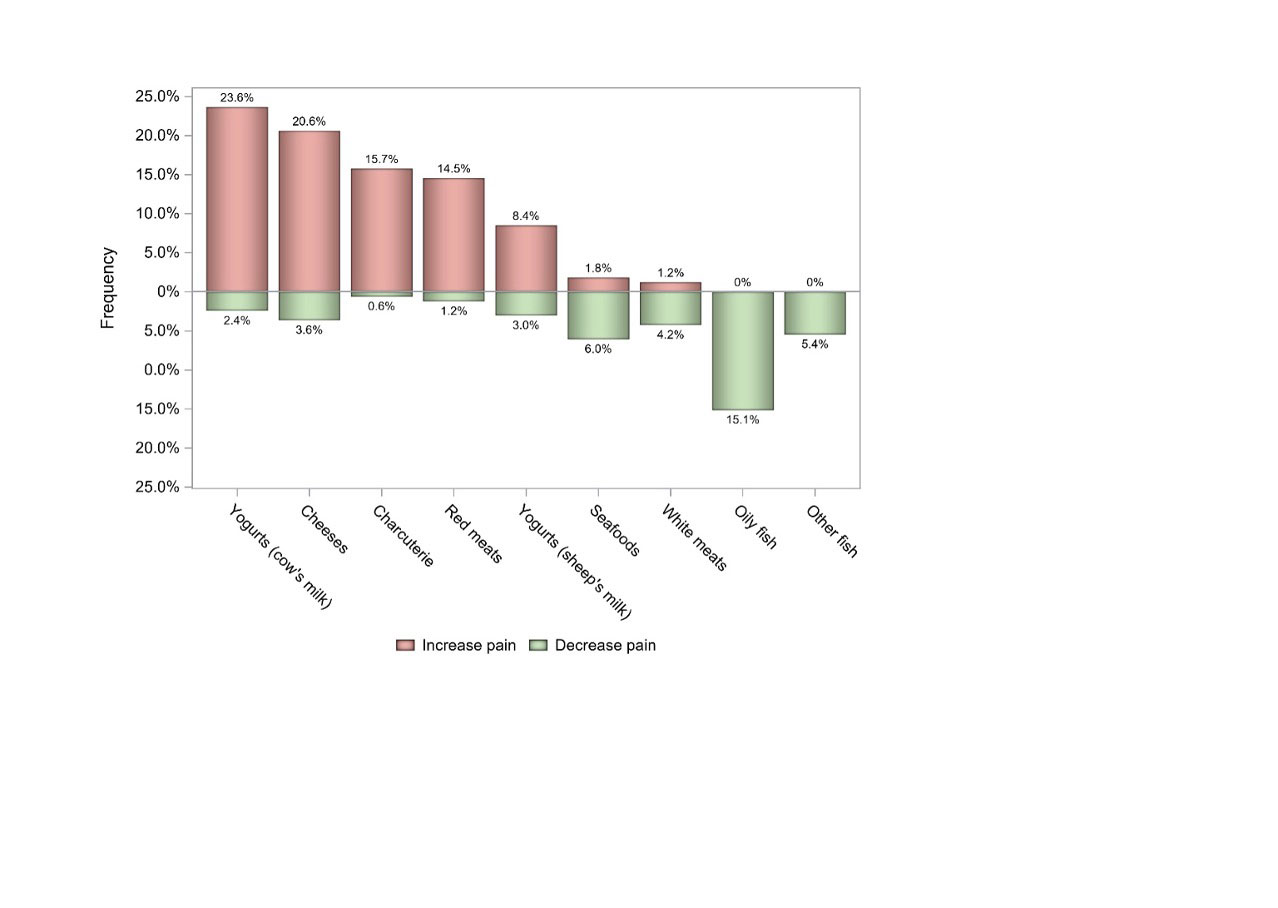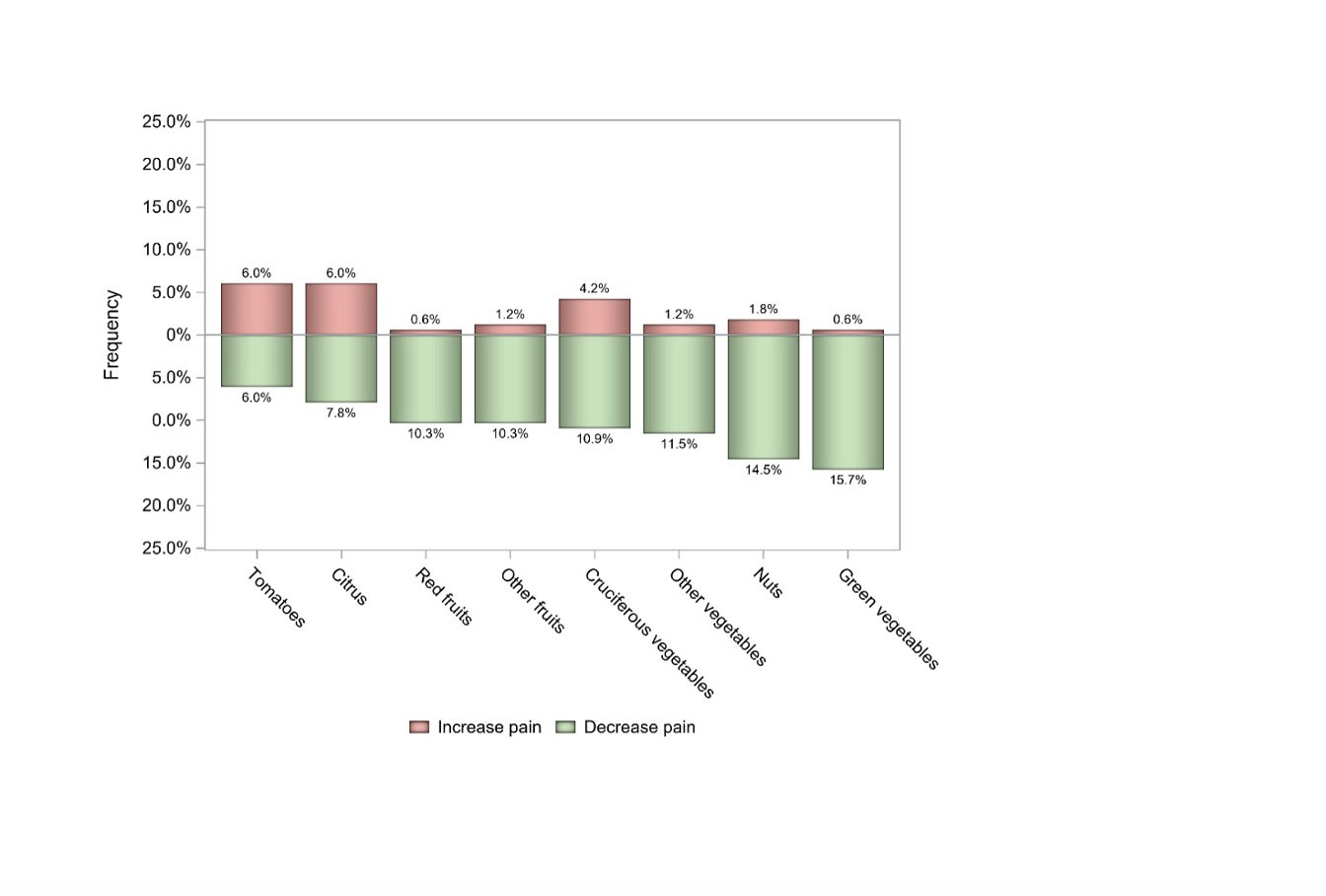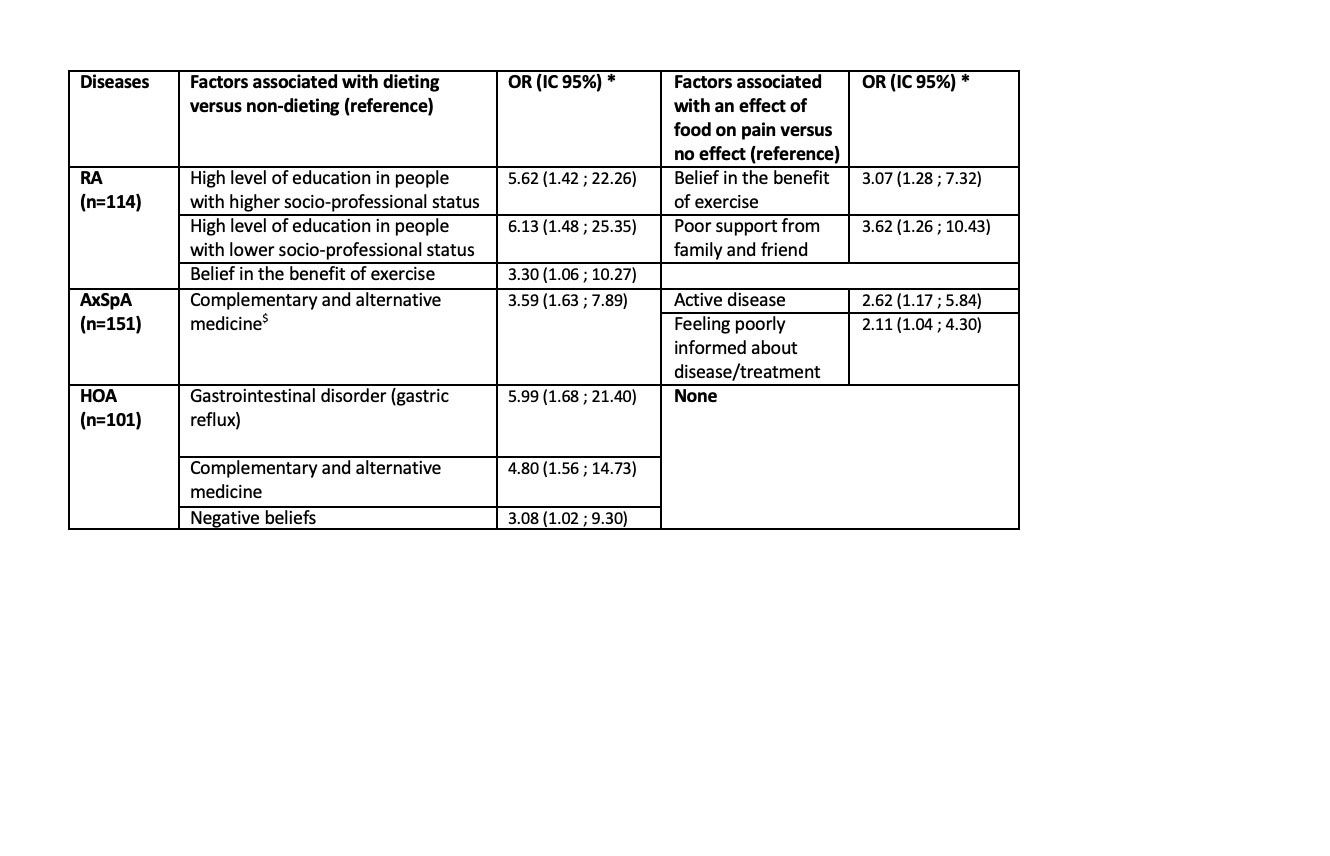Session Information
Session Type: Poster Session C
Session Time: 1:00PM-3:00PM
Background/Purpose: Diet is a subject of questioning and beliefs among patients with rheumatic diseases. They are inclined to change their eating habits and sometimes follow unscientific advice in order to alleviate their symptoms. Thus, we want to investigate the dietary practices and beliefs of patients with rheumatic diseases and factors associated with these practices.
Methods: A cross-sectional multicenter study conducted in 6 university rheumatology departments enrolled patients with established inflammatory arthritis (IA) (rheumatoid arthritis (RA) axial spondyloarthritis (AxSpA)) or hand osteoarthritis (HOA), fulfilling ACR/EULAR2010, ASAS2009 and ACR1990 criteria, respectively, regardless of treatment and disease activity. Patients with celiac disease were excluded. Patients completed a self-administered questionnaire developed for the purpose of the study exploring dietary practices and patients’ perceived effects of diet, foods and beverages on their rheumatic symptoms (pain and fatigue). Univariate and multivariate analyses assessed associations between diet practices or effect of food on pain and the patients’ characteristics (sociodemographic, lifestyle, health beliefs and disease activity).
Results: 392 patients were included (123 patients with RA, 161 with AxSpA, and 108 with HOA) with a mean age of 56 years; 72% and 82% of patients with AxSpA and RA were treated with biologics, respectively.
26 % of patients were on or had been on at least one diet (30%, 24% and 22% of patients with AxSpA, RA and HOA respectively). The cow’s milk-free and gluten-free diets were the most followed by patients with IA (26.5% and 25.6% respectively) while the cow’s milk-free diet was the most followed in HOA patients (29%). Other diets were mainly fasting and lactose free. Among the patients who followed a diet, 51% reported a decrease in pain and 62% reported an improvement in their general condition. The median duration of diets was 12.0 [4.0 ; 30.0] months). Patients were mainly advised by friends and family (45%) or via internet (47%), less frequently by doctors (18%).
42% of patients declared at least one food or beverage increasing or decreasing pain. Dairy products, alcohol, red meat and sweet products more often increased pain, whereas green vegetables, fruits, fatty fish, nuts and turmeric more often decreased pain (figure 1 and 2).
In the multivariate analyses, the use of complementary and alternative medicine (CAM) was associated with dieting in AxSpA and HOA, but not in RA. However, CAM was not associated with a perceived effect of diet on pain. Health beliefs (positive or negative) and lack of support or information were associated with dieting or effect of food on pain (Table 1).
Conclusion: 26% of patients with rheumatic diseases followed or had followed an exclusion diet, most of time without doctor’s advice and 42 % of patients report an effect of foods on their symptoms with potentially pro or anti-inflammatory foods identified by patients. This study provides insights into the determinants of dietary practices, including health beliefs, patients’ perspective, and the use of CAM and may give clues on how to include diet in the management of rheumatic diseases.
* model adjusted on age and covariates selected in univariate analysis (p-value<0.15) (stepwise model)
To cite this abstract in AMA style:
RENARD D, Tuffet S, Dieude P, Claudepierre P, Gossec L, Fautrel B, Molto A, MIceli C, Richette P, Maheu E, Carette C, Czernichow S, JAMAKORZYAN C, Rousseau a, Berenbaum F, Beauvais C, SELLAM J. Dietary Practices and Beliefs of Patients with Rheumatic Diseases and Relationship with Symptoms: Results of a Multicenter Cross-sectional Study [abstract]. Arthritis Rheumatol. 2022; 74 (suppl 9). https://acrabstracts.org/abstract/dietary-practices-and-beliefs-of-patients-with-rheumatic-diseases-and-relationship-with-symptoms-results-of-a-multicenter-cross-sectional-study/. Accessed .« Back to ACR Convergence 2022
ACR Meeting Abstracts - https://acrabstracts.org/abstract/dietary-practices-and-beliefs-of-patients-with-rheumatic-diseases-and-relationship-with-symptoms-results-of-a-multicenter-cross-sectional-study/



